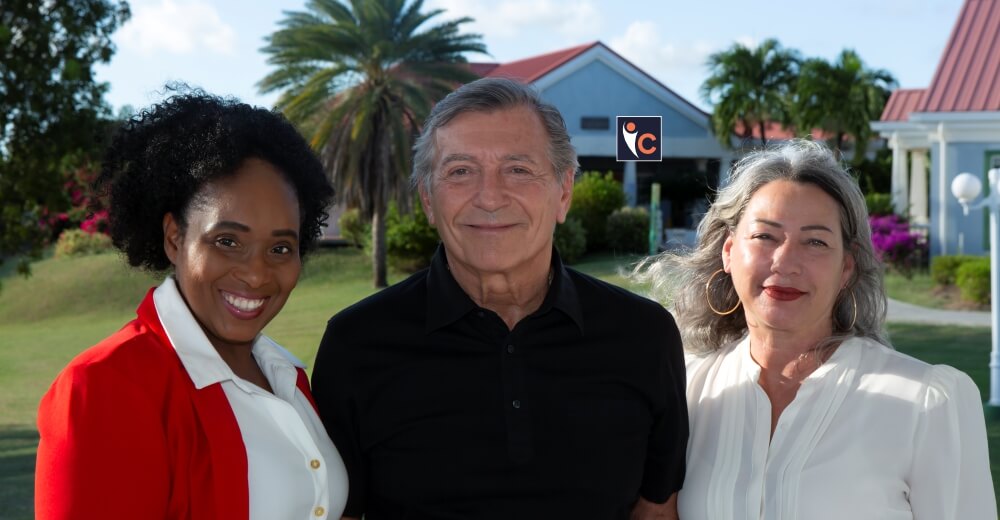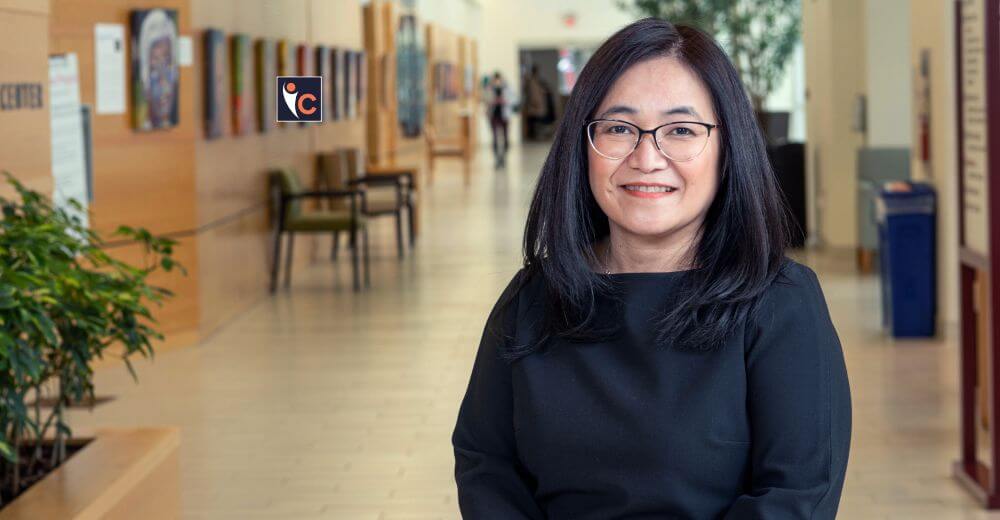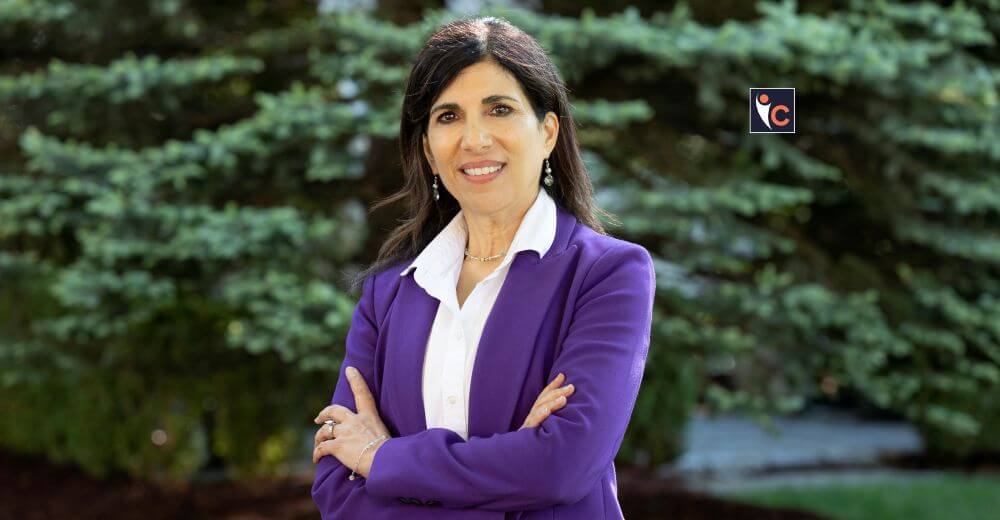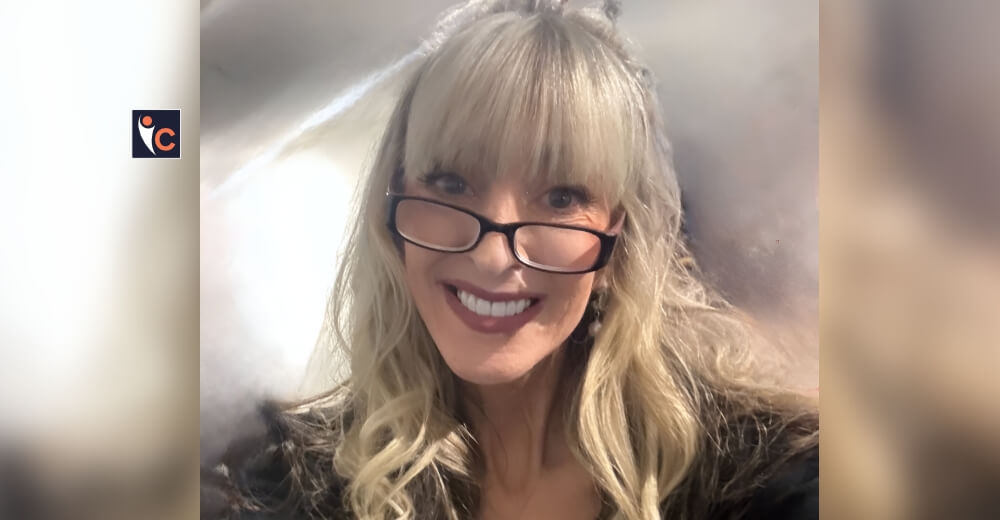Imagine being diagnosed with a disease rife with stigma and social repercussions. What would be your emotional state? How would you sustain through the prejudices across the community?
For those living with the impacts of stigma, it is important to find inspiring hope. A hope that includes empathy, compassion, and kindness in the community. This fall, we met Joanne Simons, who made it her mission to create places of safety and belonging for those who face difficulties in feeling connected with their surroundings. With her enriched volunteering experience in not-for-profit organizations, she has helped transform the lives of many with her kind and compassionate approach.
Almost 20 years of experience in multiple leadership roles helped her understand patients’ medical and emotional issues and the social ailments involved with prejudiced diseases such as HIV. Currently, she is the CEO of Casey House, a specialty hospital in Toronto providing ground-breaking care to people living with and at risk of HIV. Joanne is the ideal empathetic leader that the world of HIV care delivery deserves.
At Casey House, she leads the organization’s mission of judgment-free care delivery while enabling people living with and at risk of HIV by focusing on possibilities rather than constraints.
In the following interview with Joanne, we were amazed to hear her insights on her leadership experience and the success she brought to Casey House.
Below are the interview highlights.
Joanne, kindly brief us about yourself and your professional journey so far.
I learned the importance of volunteer work at a young age. It has always been an important part of my family’s life.
Entering the not-for-profit sector, initially as a fundraiser, helped me connect to the community and offered a way to contribute to others. On that journey, I got interested in the mission work of the agencies I worked for. Since then, I have started to enhance my skills in program development, public policy, and organizational leadership.
What has been the biggest motivation and inspiration for you throughout your life that has helped you become a successful leader?
I have benefited from tremendous leaders who took the time to mentor and coach me throughout my career, providing both encouragement and critical feedback. But my biggest inspiration is my father. While he died five years ago, I continued to hold his voice in my head. Back then, he had a bright, kind, generous mind and a fierce determination that I aspire to develop too.
Please tell us about Casey House and the developments and ideas that led to its inception.
Casey House has evolved and grown from our early days as a hospice to a hospital providing care for people living with and at risk of HIV. Anchored on a foundation of activism, advocacy, and trailblazing, our roots stretch back to the AIDS pandemic, when pervasive stigmas and discrimination left people to die without access to patient-centered care.
Our founders created Casey House in 1988 as the first stand-alone facility for people living with HIV and AIDS. They believed that everyone deserves to be cared for with dignity, compassion, and respect. Identifying gaps in the system, they developed innovative new approaches to deliver socially-just care and played a leading role in advancing HIV health care.
How are you guiding Casey House to achieve its mission and vision statement and be committed to its core values?
As a hospital providing care for people living with and at risk of HIV, it is paramount that we listen to and hear the voices of our clients; they guide us and ensure we stay true to our purpose and values.
We want to ensure that, in partnership with them, we have the opportunity to offer compassion while also having a lasting impact on healthcare delivery. We also want to ensure that everyone is treated equitably. At present, we have a great deal of focus on diversity and inclusivity.
What are the key offerings of your organization?
Casey House’s key offering is access to compassionate, judgment-free health care that considers the social determinants of health. Our approach to judgment-free care, meeting people where they are, and focusing on possibilities rather than constraints is revolutionizing health care.
In your opinion, what challenges do you face while delivering inpatient and outpatient services for patients with HIV/ AIDS? How are you infusing your leadership to turn them into opportunities and provide the best patient care?
The overdose crisis across Canada has killed many, and the poisoned drug supply continues to place people at great risk of harm and death. Having responded to many overdoses inside and outside our hospital, we opened supervised consumption services on-site so that people who use substances can do so in a safer environment with a reduced risk of death. On our inpatient unit, if a person is receiving safe supply in the community, we continue to support them to access this treatment during their admission. Safe supply is a prescribed pharmaceutical opioid that helps to reduce harm associated with the current street supply, including overdose.
What has been a turning moment in your life that has shaped your professional journey profoundly?
Having lost my mother to domestic violence at a young age, I am driven to create places of safety and belonging for those who have found themselves isolated or disconnected from their community. Everyone deserves the opportunity to live, thrive, and be free of violence and fear.
As an experienced leader, what advice would you like to give to budding entrepreneurs wishing to enter this industry?
Despite having years of experience, I’m still learning and seeking new knowledge every day. Hence, one should never stop learning.
One piece of advice I don’t think I’ve heard often enough is that kindness matters. That doesn’t mean you are a pushover. Approaching issues or decisions with kindness, even if they are hard, helps to ensure that you are making the right decision rather than the ones that come from a place of anger or achieving a personal agenda.
The second is the one I continue to learn from Stephen Covey – listen with the intent to understand, not to reply. Lastly, the one thing I learned from my dad is that you can choose the type of life you want and how people experience you. Make it good because ‘life is good’.
What are the future goals of your company? How do you envision upscaling its operations and reach in 2022 and beyond?
Casey House welcomes new clients for both inpatient and outpatient services. Over the past year, we have seen an increase in visits and have expanded our outpatient programming to meet our client’s needs. In addition to a lack of access to health care, some of their most pressing challenges include lack of access to housing, mental health concerns, and substance use that interferes with daily living. These, combined with an increasingly toxic drug supply, make it difficult to achieve health and wellness. These are systemic issues that will need multiple players to solve.
Next Story: https://insightscare.com/kate-culter-enhancing-patient-care-with-technology-leadership/















